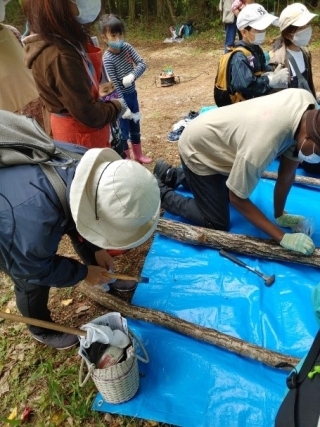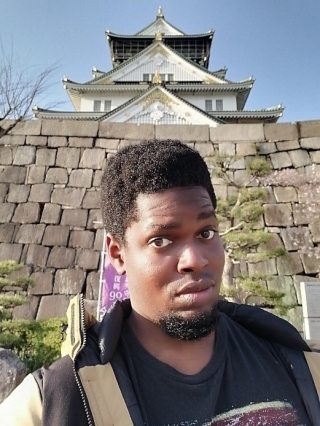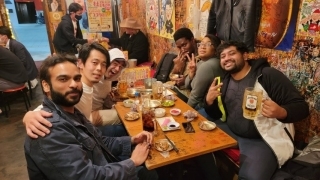JET Programme Series: Japan: Do I Stay or Do I Go? - Isiah Archer
2022/12/5



JET Programme Series: Japan: Do I Stay or Do I Go? - Isiah Archer


It’s been a year since I arrived in Japan. Uncertain, unsure of myself, but with an intense desire to step outside my comfort zone to experience more and learn about myself deeper, I’ve tried to travel abroad to see more.
I paid so much for experiences and adventures. Japan is not the cheapest place to tour by any stretch, I’m lucky my salary is enough for me to afford some simple luxuries. I’ve not ventured outside of Japan as yet due to the strict quarantine measures, and I hope to visit more places soon. And to be honest, there’s way too much to do in Japan anyway. For example, I tried a lot of the local cuisine and quite frankly, I absolutely love it!
I’ve traveled to so many places such as Oita, Fukuoka, Hiroshima, Osaka, Kyoto, Kobe and Tokyo, with even more to come in the future. I even participated in a workshop in the forest learning how to grow mushrooms using logs and making firewood because, why not!
I’ve met people who I can trust. Japan is a high trust society but deep connections, ironically are hard to come by. Japan is a high context society, reflects in their culture. Unfortunately, other ALTs did not have the same beneficial experiences as I did and have decided to return to Trinidad. Such is life and I recognise that not everyone would share my experiences or demeanor. I’ve had different experience to what I had expected, as the people are more expressive than I thought, though many are quite shy.
It seems to me that both the language barrier and the need to avoid embarrassment allow for the introvert stereotype of Japanese people. Think about if you were in a drinking party surrounded only by Japanese people who spoke no English. Would you still be an extrovert (assuming you were already) and try putting yourself in the conversation if people couldn’t even understand you anyway? And to me, that might probably be the one thing that would prevent the sharing or at least, appreciation of Caribbean culture by Japanese people. The twin island republic of Trinidad and Tobago is known for its Carnival, for example. I’ve spoken to some Japanese people and shown them the aspects of our Carnival, such as J’ouvert. and by far the most common response: “It looks like fun but I couldn’t do that.” And in the end, that’s ok. There are elements of Carnival that not even locals partake in, because of how chaotic and wild it can be. But for the Japanese people that do have the gall to dive in, they have quite the experience. I saw that for the ‘Soca in Japan’ event that took place in Chiba and Tokyo in September (not the normal time for Carnival but no one wants to wine in subzero weather…), and I went to the J’ouvert event where I saw another side of the Japanese persons, at least, the ones that were part of the event. I went with my Trini friends as well, so we all learnt about the other side of Japan.
In the end, even though we want to show the Japanese the culture we are all so proud of, probably only a small percentage of persons may actually show enough interest to engage with you. There should be no pressure as if you continue to be respectful, you’ll always find someone who speaks your language, metaphorically speaking, and has the personality to try new things and go the distance in experiencing your culture. Cherish those people and those moments.
Speaking of language, it’s been such a challenge just keeping up the motivation to learn Japanese, even though I’m hugely immersed in it. I hear it constantly, I walk outside and hear children speaking in the language, I see the script in advertising and on differing products in various stores, but the sheer historical and linguistic expanse of the language makes it a chore to study.
Not to say that its not interesting. The intricacies of the language are very intriguing to me, considering I’m a language buff myself, being fluent in both Spanish and French as well as English. I have the benefit of being in every English class as an ALT to see the Japanese English teachers explain the differences in grammatical structure between English and Japanese. I’ve been learning a lot of Japanese just from doing my job. It’s a nice advantage of being an ALT.
I’ve gained freedom and maturity, and I’m happy to have had 2 years extra in Trinidad to reflect on the errors that I made before so that I could make a better effort to avoid them (although being stuck in my house due to covid restrictions is something I never want to go through ever again). I am more confident in my financial management, managing my resources, it helps that I have more resources to manage in my new job. I’m also kind of a cheap guy anyway, so I tend to save a lot. My thoughts on the future are on potential opportunities, taking advantage of language courses, not only in Japanese but in French and Spanish now that I can afford it, gaining certificates to show my competence and improve my resume profile. In the end, I am hopelessly torn between two places: the land of my birth in Trinidad and Tobago and the new love that I have for Japan and its people. I am unsure of my next move but I’m still thankful to be in this position in the first place, regardless of what path I choose to take in the coming years.
JET Series: Do I Stay or Do I Go? (Japanese Embassy's Facebook)
JET Programme Series Archives
I paid so much for experiences and adventures. Japan is not the cheapest place to tour by any stretch, I’m lucky my salary is enough for me to afford some simple luxuries. I’ve not ventured outside of Japan as yet due to the strict quarantine measures, and I hope to visit more places soon. And to be honest, there’s way too much to do in Japan anyway. For example, I tried a lot of the local cuisine and quite frankly, I absolutely love it!
I’ve traveled to so many places such as Oita, Fukuoka, Hiroshima, Osaka, Kyoto, Kobe and Tokyo, with even more to come in the future. I even participated in a workshop in the forest learning how to grow mushrooms using logs and making firewood because, why not!
I’ve met people who I can trust. Japan is a high trust society but deep connections, ironically are hard to come by. Japan is a high context society, reflects in their culture. Unfortunately, other ALTs did not have the same beneficial experiences as I did and have decided to return to Trinidad. Such is life and I recognise that not everyone would share my experiences or demeanor. I’ve had different experience to what I had expected, as the people are more expressive than I thought, though many are quite shy.
It seems to me that both the language barrier and the need to avoid embarrassment allow for the introvert stereotype of Japanese people. Think about if you were in a drinking party surrounded only by Japanese people who spoke no English. Would you still be an extrovert (assuming you were already) and try putting yourself in the conversation if people couldn’t even understand you anyway? And to me, that might probably be the one thing that would prevent the sharing or at least, appreciation of Caribbean culture by Japanese people. The twin island republic of Trinidad and Tobago is known for its Carnival, for example. I’ve spoken to some Japanese people and shown them the aspects of our Carnival, such as J’ouvert. and by far the most common response: “It looks like fun but I couldn’t do that.” And in the end, that’s ok. There are elements of Carnival that not even locals partake in, because of how chaotic and wild it can be. But for the Japanese people that do have the gall to dive in, they have quite the experience. I saw that for the ‘Soca in Japan’ event that took place in Chiba and Tokyo in September (not the normal time for Carnival but no one wants to wine in subzero weather…), and I went to the J’ouvert event where I saw another side of the Japanese persons, at least, the ones that were part of the event. I went with my Trini friends as well, so we all learnt about the other side of Japan.
In the end, even though we want to show the Japanese the culture we are all so proud of, probably only a small percentage of persons may actually show enough interest to engage with you. There should be no pressure as if you continue to be respectful, you’ll always find someone who speaks your language, metaphorically speaking, and has the personality to try new things and go the distance in experiencing your culture. Cherish those people and those moments.
Speaking of language, it’s been such a challenge just keeping up the motivation to learn Japanese, even though I’m hugely immersed in it. I hear it constantly, I walk outside and hear children speaking in the language, I see the script in advertising and on differing products in various stores, but the sheer historical and linguistic expanse of the language makes it a chore to study.
Not to say that its not interesting. The intricacies of the language are very intriguing to me, considering I’m a language buff myself, being fluent in both Spanish and French as well as English. I have the benefit of being in every English class as an ALT to see the Japanese English teachers explain the differences in grammatical structure between English and Japanese. I’ve been learning a lot of Japanese just from doing my job. It’s a nice advantage of being an ALT.
I’ve gained freedom and maturity, and I’m happy to have had 2 years extra in Trinidad to reflect on the errors that I made before so that I could make a better effort to avoid them (although being stuck in my house due to covid restrictions is something I never want to go through ever again). I am more confident in my financial management, managing my resources, it helps that I have more resources to manage in my new job. I’m also kind of a cheap guy anyway, so I tend to save a lot. My thoughts on the future are on potential opportunities, taking advantage of language courses, not only in Japanese but in French and Spanish now that I can afford it, gaining certificates to show my competence and improve my resume profile. In the end, I am hopelessly torn between two places: the land of my birth in Trinidad and Tobago and the new love that I have for Japan and its people. I am unsure of my next move but I’m still thankful to be in this position in the first place, regardless of what path I choose to take in the coming years.
JET Series: Do I Stay or Do I Go? (Japanese Embassy's Facebook)
JET Programme Series Archives
